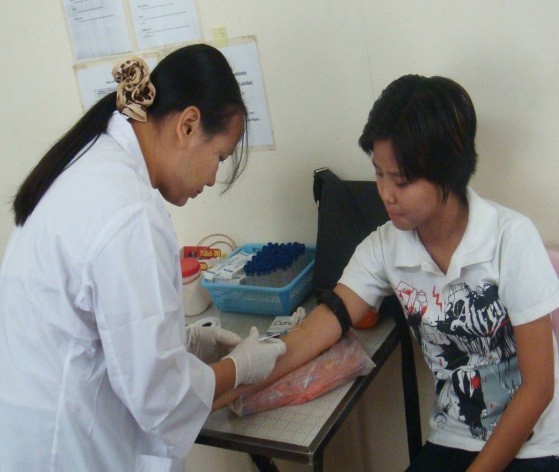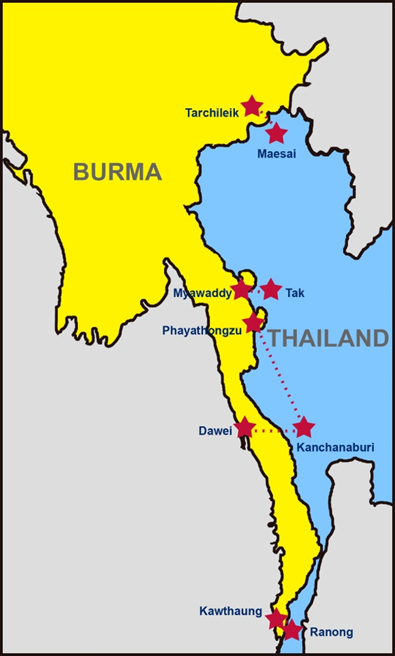Speeches Shim
The U.S. President’s Malaria Initiative (PMI), led by the United States Agency for International Development in partnership with the Centers for Disease Control and Prevention, implements malaria surveillance, research, commodity distribution and prevention activities in every country in the Greater Mekong Subregion.

The objective of the PMI program is to prevent the spread of drug resistant malaria, usually found in cross-border regions. PMI is joining forces with Thailand’s International Development Cooperation Agency (TICA) to provide targeted support to the Burma Ministry of Public Health to scale up malaria control efforts on the Burma side of the border.
REGIONAL PARTNERSHIP
Thailand and the United States are bringing their expertise and resources to collaborate with the Burma Ministry of Public Health to tackle the challenge of drug resistant strains of malaria along the shared border regions of Thailand and Burma. Malaria is a serious problem for the approximately 850,000 inhabitants and migrant workers living along the border. A lack of quality malaria services has long been identified as a gap in malaria control efforts in these difficult-to-access areas.
Malaria control is being strengthened through training for Burma’s Malaria Control Program staff on diagnosis, treatment, mosquito vector control and support for operational costs for delivering services in targeted areas. A special focus area is the workforce at the Dawei deep sea port construction project in Burma, a regionally significant infrastructure project employing thousands of construction workers. The project developer, the Italian-Thai Development Company, is providing additional support for malaria prevention, screening, and treatment services at its work site.

TWIN CITY MALARIA CONTROL MODEL
A key element of the cooperation strategy is the focus on five sets of twin cities on the Burma–Thailand border. This model provides a platform to synchronize malaria control activities in both countries.
The twin cities are:
- Tarchileik, Burma and Maesai, Thailand
- Myawaddy, Burma and Tak (Mae Sot), Thailand
- Phayathongzu, Burma and Kanchanaburi, Thailand
- Dawei, Burma and Kanchanaburi, Thailand
- Kawthaung, Burma and Ranong, Thailand
Minority ethnic groups residing in remote areas along the border and migrant workers in forestry, mining, farming and construction are particularly vulnerable to malaria. Drug resistant malaria can develop from patients who are diagnosed or fail to complete treatment. Cross-border screening efforts are vitally important to prevent drug-resistant malaria spreading globally.
TRILATERAL PARTNERS
Burma Ministry of Public Health, Thailand International Development Cooperation Agency, Thailand Ministry of Public Health and USAID.

Comment
Make a general inquiry or suggest an improvement.